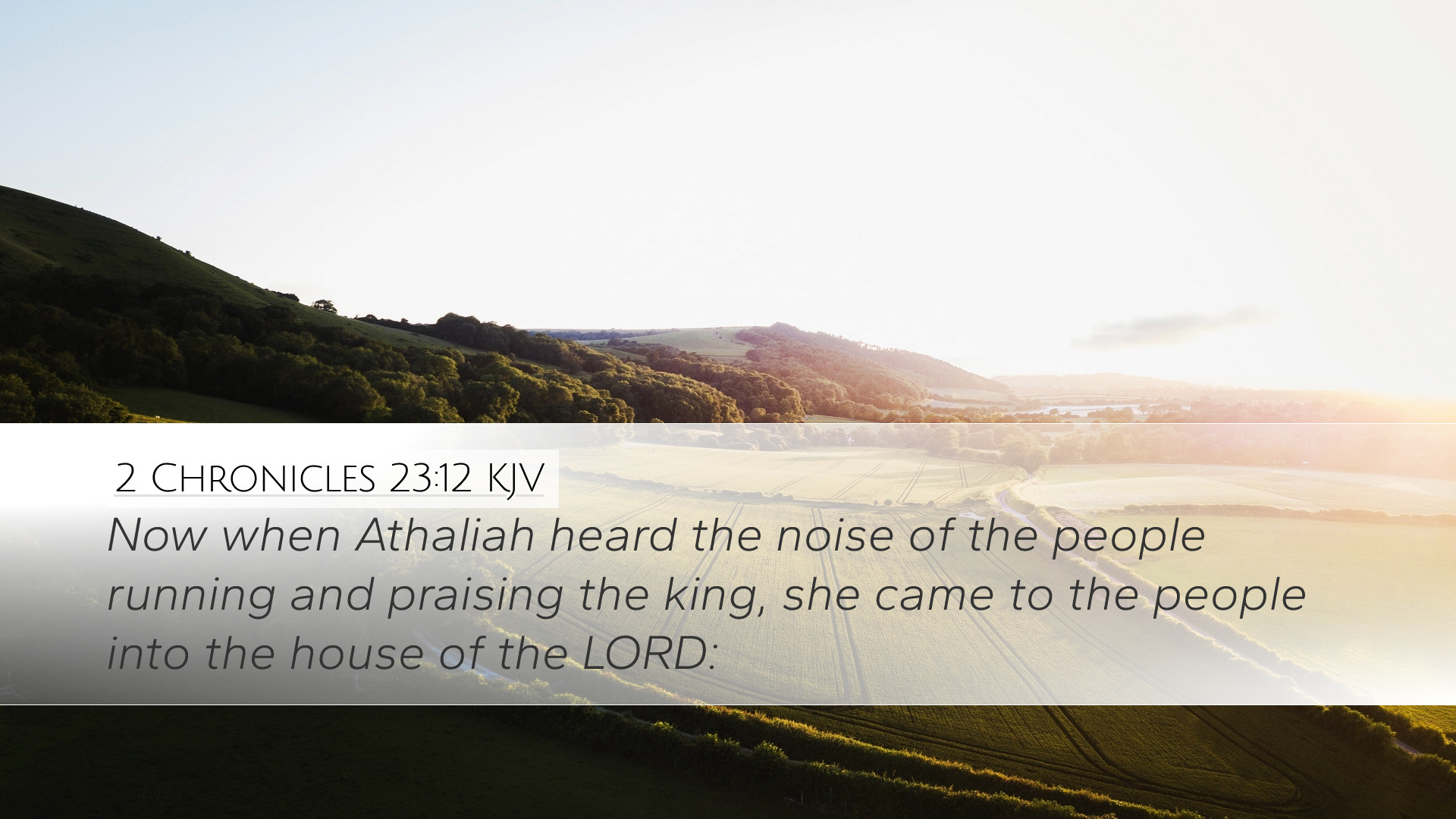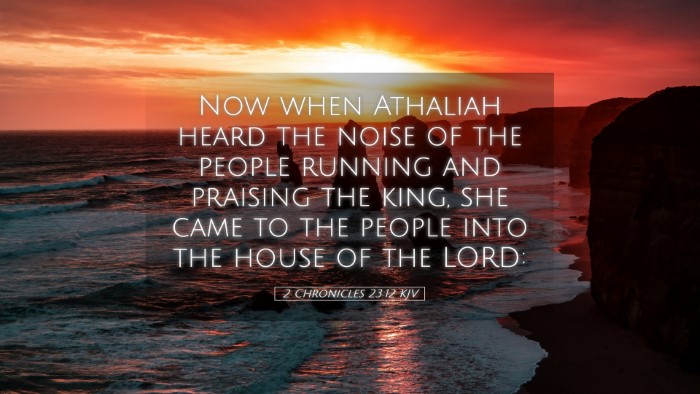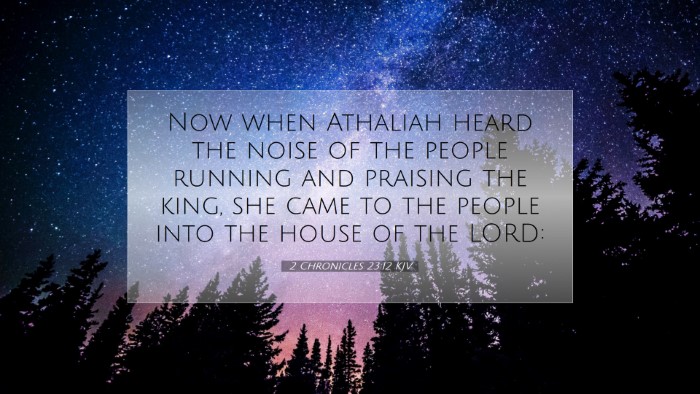Commentary on 2 Chronicles 23:12
2 Chronicles 23:12 states:
"And when he had come out, the people brought out the king’s son and put the crown on him, and gave him the testimony, and made him king. Then Jehoiada and his sons anointed him and said, 'Long live the king!'"
Contextual Background
This verse occurs during a critical transitional period in Judah's history, marking the restoration of Davidic monarchy after the evil reign of Athaliah. Athaliah, the widow of King Ahaziah, had usurped the throne and sought to eliminate all royal heirs. This act of treachery necessitated Jehoiada's intervention to protect the young heir, Joash, and reestablish rightful rule.
The Significance of Jehoiada’s Leadership
Jehoiada, the high priest, exemplifies godly leadership and devotion. His actions show a commitment to preserving the Davidic covenant amidst corrupt rule. Various commentators highlight Jehoiada’s role in:
- Revival of Worship: Jehoiada reinstates proper worship during a time when idolatry threatened to overtake the nation (Matthew Henry).
- Political Strategy: By organizing the Levites and the captains of hundreds, he strategically secures a supportive military faction to back the rightful heir (Albert Barnes).
- Spiritual Guidance: The emphasis on the 'testimony' (the covenant law) given to Joash represents a commitment to God’s commandments as the foundation for his rule (Adam Clarke).
The Ceremony of Anointing
The ceremony itself, where Joash is crowned and anointed, is rich in symbolism:
- Crowning of Kings: This act represents the acknowledgement of God’s divine selection and the reaffirmation of the covenant promise associated with the Davidic line (Henry).
- Proclamation of Kingship: The acclamation "Long live the king!" reflects both a national desire for stability and the people’s recognition of God’s providence in restoring righteous leadership (Barnes).
- Public Commitment: The public nature of Joash's anointing serves as a communal endorsement of his kingship, which is essential for the legitimacy of a monarch in ancient Israel (Clarke).
Theological Implications
This event is imbued with deeper theological meaning:
- God’s Sovereignty: It illustrates God's sovereignty over human history and the fulfillment of His promises, as demonstrated by the preservation of the Davidic line (Henry).
- The Role of Community: Emphasizing the unity of the people and their leaders in recognizing God’s plan is crucial in understanding the corporate aspect of faith and leadership in Israel (Barnes).
- Covenantal Faithfulness: Joash’s anointing can be seen as a moment of renewal, appealing to the covenant made with David and illustrating the continual need for Israel to align with God’s will (Clarke).
Application for Today’s Leaders
For pastors, students, and theologians, several lessons can be drawn from this passage:
- Integrity in Leadership: Jehoiada's commitment to God and the anointed king serves as a model for leaders today to align their decisions and actions with God’s purpose.
- Importance of Preparation: Just as Jehoiada prepared for the anointing through careful planning and gathering of support, contemporary leaders should invest time in preparation and discernment for ministry.
- Encouraging the Body of Christ: The emphasis on communal celebration of God’s work reminds us that the church is called to celebrate together the movements of God in their midst (Henry, Barnes, Clarke).
Conclusion
The events surrounding 2 Chronicles 23:12 not only highlight a pivotal moment in Judah’s history but also provide timeless truths about leadership, divine providence, and the community of God’s people. As we reflect on this passage, let us commit ourselves to uphold the values of justice, righteousness, and fidelity to the covenant with God, recognizing His sovereignty in every aspect of our lives.


